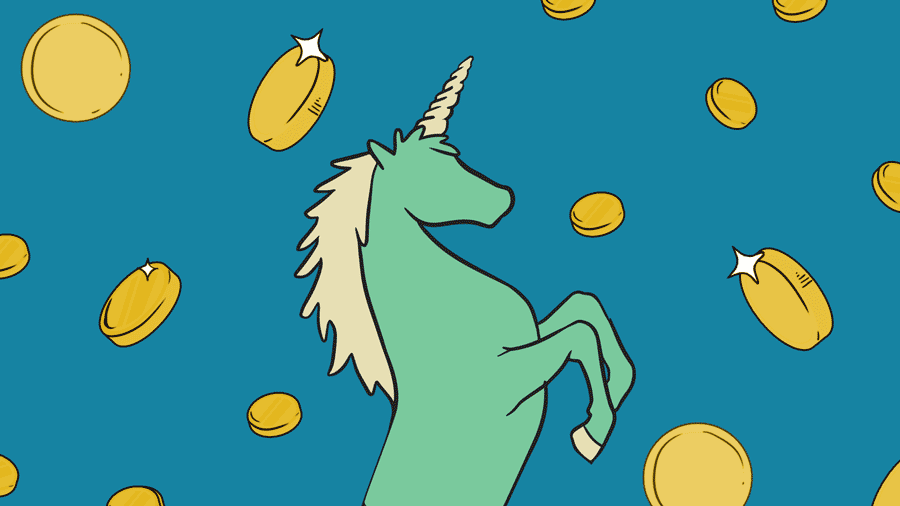The initial public offering markets have opened up for high-growth tech companies, but most of those filing have been revenue-losing tech companies. As such, it seems like a good time to analyze the private and public valuations of unicorn companies that have exited via the public markets to see how these valuations compare to recent years.
Subscribe to the Crunchbase Daily
What we found for those unicorns that have made exits is that the 2020 IPO cohort offered up a 117 percent increase between the last known valuation for a company and its valuation upon going public—the highest jump in a five-year timeframe. The second largest year is 2018, when we saw 58 percent growth.
The median date for these last private valuations is around two years prior to their IPO.
The concern that these companies do not have high growth rates moving forward is not held up by the IPO pricings. And many of these companies have traded even higher than their IPO price within the first day of going public. This jump in first-day trading is causing a heated discussion on a “broken IPO process” for 2020.

It is worth noting that the unicorn phenomenon is fairly recent—it was just five years ago that 2015 was branded the “year of the unicorn.”
- Between 2005 and 2010, there were 14 new unicorns created in total, of which 12 have exited.
- From 2011 through 2013, there were 47 new unicorns, of which 35 have exited.
- Since 2014, we’ve recorded 789 new unicorns. Of those, 172, or 22 percent, have exited.
Since 2015, new unicorn formation has continued at a rapid pace, with 2018 peaking at 172 new unicorn companies and 2019 not far behind. Currently, we count 630 private active unicorns on our board that have collectively raised more than $450 billion and are valued at just under $2 trillion—close to the current market cap of Apple. In total, 220 unicorns have exited via either an IPO or M&A.

As technology companies have steered away from the public markets in recent years, there has been an ongoing discussion on growth and value creation as companies are able to raise ever-larger private funding rounds without the scrutiny of being a public company. The concern is that by the time these highly valued companies go public, growth will have slowed down and retail investors will not benefit as they did with earlier tech IPOs; namely Amazon which went public within three years of being founded, and Google’s exit within six years.
However, companies eventually have to either go public or get acquired in order to return value to their investors. For unicorn companies, going public is the preferred avenue by a ratio of 2-to-1.
Venture capitalist Tomasz Tunguz of Redpoint Ventures recently wrote on valuations for companies in the private and public markets, noting a surprising shift during 2019 in favor of the public markets valuing high-growth companies at better multiples.
Prior to that, venture and private-equity investors gave private companies a better multiple, encouraging companies to stay private longer and raise funding for growth from these sources, according to Tunguz.
“In 2017 and 2018, the median high-growth private company raised at a higher forward ARR multiple than in the public markets,” he wrote. “Starting in 2019 and continuing in 2020, the public markets value these companies with better multiples.
“This is a critical shift. It means raising capital in the public markets is now less expensive than in the private markets,” he said.
Tunguz clarifies that this is not true for all companies, but for companies growing at a rate above 50 percent.
This is the year of the IPO, with 364 on the US stock market so far and counting; the most since 2000. And the lengthy queue of unicorns still private feeds the trend. With traditional IPOs, direct listings, and the largest ever number of new SPACs listed this year, there are multiple ways for companies to go public. ‘Stay private longer’ with its own acronym SPL has become a dirty word among Silicon Valley investors. With Ant Group, the most valuable unicorn on our board today valued in 2018 at $150 billion with plans to go public this week with a value more than double that at $310 billion, who can say if they waited too long. More to come.
Illustration: Li-Anne Dias

Stay up to date with recent funding rounds, acquisitions, and more with the Crunchbase Daily.








![Illustration of stopwatch - AI [Dom Guzman]](https://news.crunchbase.com/wp-content/uploads/Halftime-AI-1-300x168.jpg)


67.1K Followers